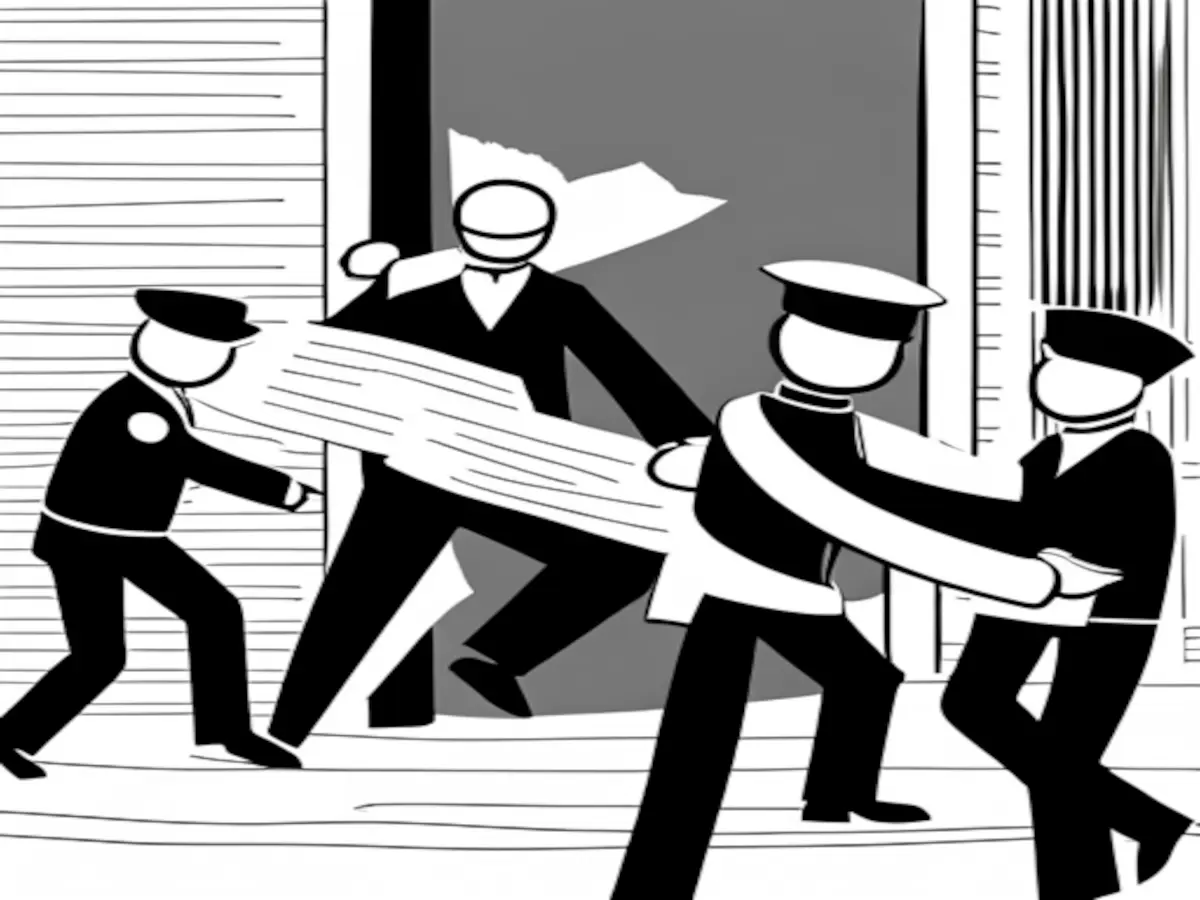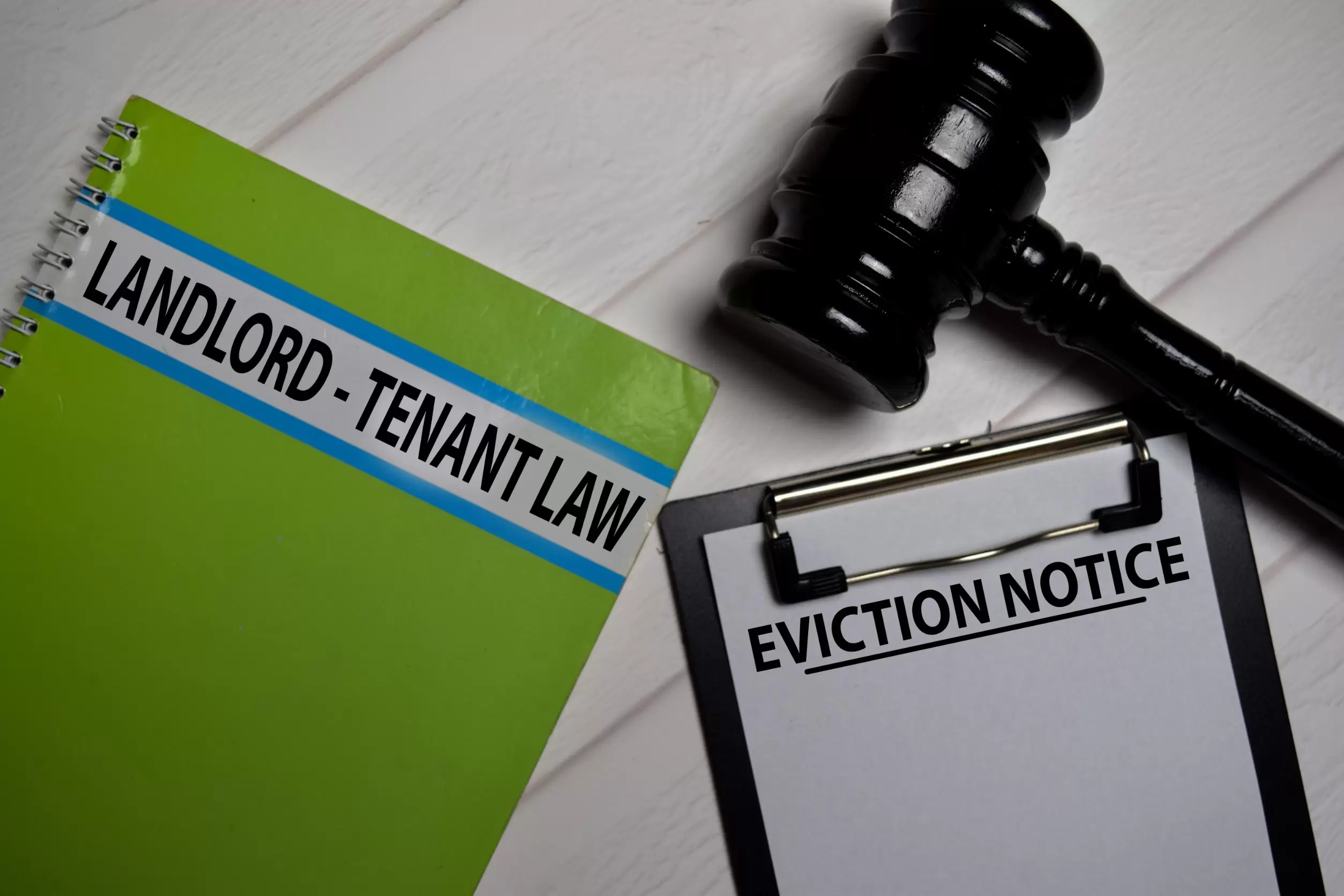
The legal options open to landlords in Spain who need to evict squatters or tenants for non-payment of the rent have traditionally been complex, expensive and, as a result frustrating.
Indeed, legal proceedings for an eviction in Spain are probably even more difficult today as a result of Spain's new eviction laws introduced in 2023 by the current socialist government, under pressure from its even more left-wing government partners. This will likely become an important consideration for those investing in Spanish property.
So, if you find yourself in a situation where you need to remove a person from your property in Spain, what are your legal rights and, perhaps more importantly, what are the practical steps you need to take?
Want to hear what other clients
are saying about us?
1. Legal Background to Evictions in Spain
Traditionally, the Spanish legal system has given more weight to the need to tenants rights to a home than the property rights of the landlord. This stance has derived from the Spanish Constitution, in particle Articles 18.1 (inviolability of a person's home and protection against intrusion save judicial order) and Article 33.1 (the right to private property). More complete information is available on
As a result , in 2013, new laws relating to eviction proceedings were enacted by the central government in an effort to expedite proceedings and support landlords who find themselves needing to evict persons from their property.
While there have been historically a number of different causes for the right to eviction to arise, here we focus on the express eviction process as this is the one typically used by landlords who need to remove a non-paying tenant or squatter.
The judicial procedure for evictions in Spain involves a complex interplay of property rights, tenant rights, and landlord obligations.
Property owners must navigate a legal process that balances the constitutional right to housing with the owner's right to their property. Understanding this legal framework is crucial for landlords considering eviction, as it impacts every step of the judicial process.

2. When does the right to eviction arise?
The first important point to note is the difference between home invasion and squatting in Spain.
The former pertains to entering a furnished and habitable dwelling with the intention of infringing upon an individual's privacy and the sanctity of their home. This situation can be resolved immediately by contacting the Spanish Police to have the offenders removed from your home.
Squatting, on the other hand, involves unlawfully occupying a property that is not currently used as a residence, lacks furnishings, and is disconnected from utilities. How does this difference impact on the rights of the homeowner in Spain to recover access to their property?
3. Squatters Rights in Spain
The new Law 12/2023 on the right to housing was published in the Official State Gazette (BOE), introducing some changes in the eviction procedure of squatters. What does this law say and how does it affect property owners?
The new law amends the Civil Procedure Law to introduce improvements in the regulation of the eviction procedure in situations of vulnerability. It establishes two new requirements that the property owner must meet to file an eviction lawsuit against squatters:
- To prove whether the occupied property is or isn't the squatter's habitual residence. This can be done through the municipal registry or any other legally admissible means of proof.
- To prove whether the owner is or isn't a major holder, meaning they own 10 or more urban residential properties or have a built area exceeding 1,500 square meters, or own 5 properties in tense areas.
If the owner is not a major holder, and the illegal occupant is in a situation of vulnerability, the standard procedure will apply, but with the obligation to inform the judge of the exact day and time of the eviction and to notify the relevant social services to assess the squatter's situation.
If the owner is not a major holder, and the squatter who has gained unauthorized entry is not in a situation of vulnerability, the standard procedure will apply, but with simply the obligation to inform the judge of the exact day and time of the eviction.
If the owner is a major holder, and the squatter is in a situation of vulnerability, the eviction lawsuit will not be admitted unless a prior conciliation process has been initiated with the relevant social services. Furthermore, the judge may suspend the eviction until a housing solution is guaranteed for the squatter, with a maximum period of 12 months.
If the owner is a major holder, and the squatter is not in a situation of vulnerability, the standard procedure will apply, but with the obligation to inform the judge of the exact day and time of the eviction.
In any case, the law establishes that eviction can be carried out without prior notification to the squatter when they have entered the property through intimidation or violence.
The severity of legal action can differ based on whether the occupied property is a primary residence or a second home, contingent on the offender's intent. Occupying a primary residence often results in a more robust and swifter legal response compared to a second home, with the decision dependent on the evidence assessed by the judge.
Good relations with neighbours who are permanently resident, or indeed modern cameras or security alarms to alert you to any intrusion on your property are good investments if you have a holiday home in Spain. in order to act swiftly.
For property owners dealing with squatters, it's crucial to understand that the eviction process is a formal legal procedure. Seeking legal advice early can help navigate the complexities of Spanish law and protect your property rights.
Legal representation can be invaluable in preparing the necessary documentation and presenting your case effectively during the eviction hearing.
4. How long does it take to evict a tenant in Spain?
The duration of the eviction process in Spain can vary significantly depending on several factors. These include the grounds for eviction, whether it's due to rent arrears or contract termination, and the specific circumstances of the case.
Typically, the legal process can take anywhere from 3 to 6 months, but it may extend longer in complex cases or if the tenant contests the eviction. This timeline includes serving the eviction notice, waiting for the tenant's response, scheduling the eviction hearing, and executing the eviction order.
It's important to note that legal fees and the cost of legal representation can accumulate during this process. Property owners should factor these expenses into their decision to pursue eviction. Additionally, landlords should be aware that tenant rights in Spain are robust, and any misstep in the legal process could lead to delays or even dismissal of the case.

5. What Options does the Landlord have?
In the first place, it should be highlighted that what a landlord should NOT do is to cut off the utility supplies, change the locks or sell the property without informing the tenant.
Such actions by a landlord are expressly prohibited under Spanish law and will give give the tenant a legal right - independent of any eviction proceedings - to sue the landlord. Such actions could create bigger costs and even potentially criminal liability for coercion.
It is much more advisable to try to negotiate an out of court agreement with the defaulting tenant/squatter, though if such efforts are not successful, without doubt the most effective remaining option is to initiate eviction proceedings.
Even if there are several months unpaid rent/bills, it may be quicker, more convenient and ultimately less costly for the landlord to get immediate vacant possession than to to proceed with court action in an effort to request financial compensation from a tenant who is penniless.
Before initiating the judicial process, landlords should consider all available options. This may include negotiating with the tenant to terminate the lease agreement amicably or offering a payment plan for rent arrears.
If these efforts fail, seeking legal assistance to start the formal eviction process may be necessary.
Remember, landlord obligations continue throughout this process, so it's crucial to act within the bounds of the law at all times.
6. Sending a Formal Notice to the Tenant
Once the rent has fallen due and is unpaid or the contract period under the lease contract has expired, while technically the right to evict arises immediately, it is good practice to make sure the tenant is formally notified that all the rent and bills outstanding be paid (usually by burofax available in the post office which is proof that it was sent on a particular date).
In regards to the format of this formal notice, the Supreme Court handed down it’s interpretation of Article 22.4 of the LEC (Ley Enjuiciamiento Civil) regarding the requirements when notifying a tenant of a demand for unpaid rent and utility bills in May 2014, as follows:
- The notification must contain a demand for immediate payment of the rent or other amounts due under the terms of the lease e.g. IBI, community payments, electricity, water etc). This prevents the possibility of the tenant preventing the eviction by making a late payment of the rent due at this time.
- The notification must be irrefutable, that is to say that the communication must have been sent in such a manner that it’s arrival to the tenant can be accredited (for example by certified post)
- The communication must refer to unpaid rent or other payments due under the lease that are unpaid.
The formal notification is a good idea also because, as stated, the landlord should seek to regain possession without the need to pay court costs nor the costs of legal representation.
Where the landlord notifies the tenant of the demand for payment, but the latter does not receive the notification, the landlord may have the demand added to the Official Court Notice such that the tenant is deemed to have received notice without any further action by the landlord.
This formal notice serves as the first step in the legal process of eviction. It's crucial that this document meets all legal requirements, as it may be presented as evidence during the eviction hearing. Landlords should consider seeking legal advice to ensure the notice is properly drafted and served.

7. The Express Eviction Legal Process
The ‘Express’ Eviction proceedings are used primarily to remove tenants who fail to pay rent that is due (from 2015) and squatters (from 2018).
The express eviction process is a streamlined judicial procedure designed to expedite cases of non-payment or expiration of the lease agreement. However, it's important to note that while this process is faster than traditional eviction procedures, it still requires careful adherence to legal protocols. Property owners should be prepared for potential legal fees and the need for legal representation throughout this process.
All eviction procedures can be processed via juicio verbal which is a faster process and is akin to a small claims court in the UK. The fact that the proceedings take place in this way permits a sentence to be delivered, in theory, within five days. Of course, the problem is getting the matter before the court, which typically takes several months.
When making the application to the Court for eviction it is possible for the landlord to either request eviction only i.e. demand solely the return of vacant possession of the property or to claim, in addition, those amounts outstanding in terms of rent and other bills.
In the statement of claim submitted to Court, the allegation is made that the tenant has not complied with their obligation to pay the due rent and on this basis a request is being made to return possession to the owner/landlord, with an optional demand for any unpaid rent/bills that are due.
Once the request for eviction has been filed with the Court, the Court will set a date for the hearing and an eviction date - at this point the tenant has a period of ten days from the petition by the landlord, to pay the debt, and thereby cancel the eviction (see enervation below) or to formally object to the proceedings.
If the tenant formally objects to the proceedings then the court proceeding goes ahead and the matter is heard by a judge.
If the tenant does nothing, then the eviction can proceed without the need for formal court proceeding and the tenant will be ordered to pay all outstanding monies.
We would recommend, in those cases where the option exists to pursue the matter via the criminal or the civil proceedings route, that landlords should opt for civil proceedings, which are usually faster and less expensive.
If the tenant does not formally object, yet fails to leave the property, the Court will set an eviction date at which time the eviction will take place - unless of course the tenant meanwhile pays all outstanding rent, which would stop the eviction process. The tenant is give a period of ten days to pay the rent or the eviction will take place.
An affirmative sentence of the court shall be sufficient without more to carry out the order in the date and time decided by the court.
Upon obtaining a court order for eviction of a non-paying tenant and payment of the outstanding sums, the landlord may also seek the court costs incurred and any sums owed under contractual terms that provide for extra payments if the rent is delayed.
8. Option to Withdraw the proceedings
Within the application for eviction, it is necessary to indicate in the statement of claim whether withdrawal of the action may be appropriate. For example, the landlord may also offer the tenant the possibility of a cancellation of any outstanding rent as long as the tenant leaves the property within a certain period of time (which may not be less than 15 days).
9. Annulation of the Eviction and Lease Automatically Extended
'Enervation’ of the proceedings occurs when, upon receiving notification of the landlord’s intentions to seek eviction, the tenant makes full payment of any outstanding monies due when required to do so by the judge.
In that case the tenant may continue with possession of the property under the terms of the contractual lease. It should be pointed out that ‘enervation’ of the proceedings may take place only once.

10. New Restrictions on Evictions in Spain
The current socialist government in Spain, under pressure from its left-wing government partners have enacted new laws this year.
The new Spanish housing law - Law 12/2023 has, according to its promoters in the Spanish parliament the intention of giving effect to the right to adequate housing, contained in the Spanish Constitution.
While many of the regulations contained in this new Spanish property law attempt to impact the Spanish property market in an effort to make renting property in Spain more affordable, especially in the larger cities, an important element introduces new restrictions on landlords' ability to carry out evictions.
The new new housing law aims to provide greater protection against eviction for those groups of tenants in a situation of social or economic vulnerability.
Groups representing property owners affected by squatters have remonstrated strongly against the new rules for renting property in Spain which they see as strongly favouring squatters as opposed to the legitimate owners of the properties.
Effectively anyone with a child or elderly relative in their charge or who earns less than €1800 per month can claim to be vulnerable and so delay the eviction process. Indeed this definition has been extended to anyone who claims to have been subject to domestic abuse (with no requirement to show that legal proceedings are taking place).
If the squatter is successful in claiming social or economic vulnerability, the eviction will be suspended until the Administration finds a housing alternative in the form of a home.
This is meant to be for a period of two months if the property owner is an individual, or four months if it is a legal entity, however groups representing property owners claim that the authorities are often unable to find suitable housing and accordingly it is the property owner that must pay the price.
These new restrictions have significantly impacted the landscape of property rights and evictions in Spain. Landlords must now be more cautious than ever when considering eviction, as the legal process has become more complex and tenant-friendly.
It's highly recommended to seek professional legal advice before initiating any eviction proceedings to ensure compliance with these new regulations and to protect your rights as a property owner.
Want to hear what other clients
are saying about us?
11. Frequently Asked Questions
How long does it take to evict someone in Spain?
The time it takes to evict someone in Spain can vary significantly based on several factors, including the court's efficiency and the tenant's response during the process. On average, the eviction process typically takes between 4 to 6 months. However, this duration can be shorter or longer depending on specific circumstances such as legal complexities, tenant's compliance, and court backlogs.
How do you get rid of a tenant in Spain?
To remove a tenant in Spain, the process begins with sending a formal eviction notice to the tenant, outlining the reasons for eviction and providing a deadline for vacating the property. If the tenant does not comply, you must file an eviction lawsuit. This lawsuit, prepared by a lawyer and signed by a solicitor, should include the rental agreement and proof of court fee payment. The lawsuit is then submitted to the local court where the property is situated.
How much does it cost to evict a tenant in Spain?
The cost of evicting a tenant in Spain is influenced by several factors. These include the complexity of the case, the tenant's cooperation, legal fees for hiring a lawyer and solicitor, and court fees. Additional costs might arise if the eviction process involves multiple court hearings or if there is significant resistance from the tenant. In some cases, landlords may also need to cover costs for bailiffs or enforcement officers to carry out the eviction. Expect costs of around €800 and upwards.
What is the notice period for tenants in Spain?
In Spain, tenants are required to provide a 30-day notice if they wish to terminate their rental agreement after the first six months of the lease. This notice period applies regardless of the overall length of the contract. However, if the rental contract includes a specific provision that allows for termination at any time, the tenant may end the lease earlier.









